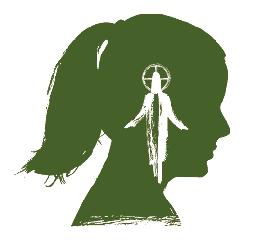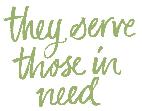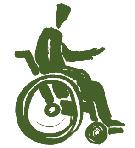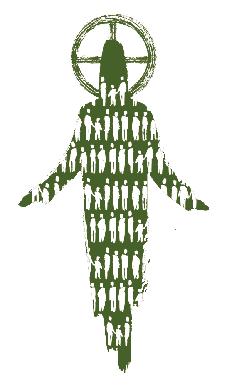WHAT CATHOLICS BELIEVE
An introductory booklet series

Life of a Christian
Introduction
God’s Plan
Sharing God’s Gift of Life
Faith, Hope & Love
Ways of Living
God Calls Us
Special Callings in the Church


WHAT CATHOLICS BELIEVE
An introductory booklet series

Introduction
God’s Plan
Sharing God’s Gift of Life
Faith, Hope & Love
Ways of Living
God Calls Us
Special Callings in the Church

In this chapter we look at what is meant by being a Christian today. If we are members of the People of God it isn’t enough just to call ourselves Christians. We have to live as true followers of Jesus. Such a life will fulfil our deepest longings, making what is already good in our lives even better. It will give us a share in God’s life. For, as we have seen, God intended us to be his friends.
There are many happy times in our lives, but they don’t last. There are many sadnesses; they sometimes seem to last much longer. We want to live honourably, but we find ourselves committing sins – mainly because of our selfishness. Our lives are so mixed. We want to be loving people and to feel loved, but we keep encountering frustrations and disappointments.
Jesus calls us out of sorrow to joy. He offers us the Good News of God’s care for us, an invitation to become members of his kingdom of love. The invitation is offered to all, and it comes from those who have already accepted it. They know its true value because they have found it to be a treasure in their own lives.




the track through life is uneven
Because of their faith they understand better that the track through life is uneven. Because of the love and mercy they have experienced they are better able to share love and mercy with others. Because they belong to a community of believing and loving people they know that they are not alone, and so they have no reason to feel the devastating loneliness which is so common today. There are still difficulties, of course, but they are difficulties shared.
These people who have already met love in their lives want us to share it with them by beginning a new way of life in which Jesus is at the heart.
From the beginning, God wanted to share his life with everyone. St Paul was one of the first to be drawn into that plan. He spoke about what he had experienced when he wrote to the Christian community at Ephesus, and his excitement bubbled up into a wonderful prayer of blessing:
This, then, is what I pray, kneeling before the Father, from whom every fatherhood, in heaven or on earth, takes its name. In the abundance of his glory may he, through his Spirit, enable you to grow firm in power with regard to your inner self, so that Christ may live in your hearts through faith, and then, planted in love and built on love, with all God’s holy people you will have the strength to grasp the breadth and the length, the height and the depth, so that, knowing the love of Christ, which is beyond knowledge, you may be filled with the utter fullness of God.
Glory be to him whose power, working in us, can do infinitely more than we can ask or imagine; glory be to him from generation to generation in the Church and in Christ Jesus for ever and ever. Amen (Eph. 3:14-21).
God’s plan is to show us, through Jesus Christ, how we can share his life. When that happens our lives have an extraordinary value, and the events of our lives have a meaning which we can understand. We are gifted with hope, love and fellowship. All we have to do is freely respond to the love which we are being offered.








us into new people
St Paul also emphasised that this remarkable gift of new life is God’s gift:
Because it is by grace that you have been saved, through faith; not by anything of your own, but by a gift from God; not by anything that you have done, so that nobody can claim the credit. We are God’s work of art, created in Christ Jesus for the good works which God has already designated to make up our way of life (Eph. 2:8-10).
God gives us a share in his own life because of his generous love. But he wants us to respond out of our own friendship, out of our own love.
Jesus brings this life to the world in so many ways: his words and actions give us the best guide and model for living a truly good life. Yet we can’t meet Jesus by our own efforts. It’s the Spirit who brings us to him. And it’s also the Spirit who changes us, turning us into new people – people of faith and hope, love and mercy. These are the qualities of our new lives.
In his Confessions, St Augustine tells of the struggles he had before he became a Christian – how he was disgusted with the bad things he did, yet found himself powerless to avoid them.
Our world has come a long way in the centuries since he lived, yet many things today are no better. We don’t want wars, yet we can’t stop them. We want to live justly, yet we find ourselves and our society acting unjustly. We want to get rid of poverty and suffering in our world, yet we –and the whole human race – seem to be powerless to do so. Men and women travel into outer space, they unravel the secrets of the universe which is our home, they make surprising discoveries and inventions – St Augustine would be astonished at what we have achieved.
Yet he would have seen, too, that many things haven’t changed. People are still searching, still lonely, still anxious, still suffering. They will always endure these things because that is the nature of existence when there is no spiritual life in it. People will exist, but they won’t truly live.
But if we accept the invitation of Jesus to become his friends we will find within ourselves the energy to do good and merciful things which we couldn’t do before. We will see with his eyes, we will feel that we are in touch with his love and mercy, we will be made strong by the power of the Spirit of God.
This new life may take some time to fill us because growth in friendship with God generally comes only gradually. We have to find it first, of course; then we have to claim it, make it our own, before it begins to grow; finally, we have to find ways of expressing it in our lives. In the booklets about the sacraments, prayer and love we have already spoken about how this can be done.
It was said earlier that the sacraments are God’s merciful actions brought about by his ministers. They have an effect in us when we respond lovingly to God. They make our lives rich with love and mercy.
It was also said that prayer draws us closer to God and draws God to us. It nourishes our friendship with God. Whether we join others to pray or have time on our own to be with God we will gain the peace that Jesus promised his followers. We will find a balance in our lives too, and discover that many problems are not nearly as bad as we thought they were. (With God’s compassionate help they may even be solved.) Prayer, the two-way communication of love, is both a way of living the Christian life and a way of growing fully in it.

The third way of growing in God’s life is by doing things lovingly. Jesus told us that the first commandment is to love God and that the second is to love people. They are branches of the same plant. We can’t love and serve God truly unless we love and serve the people that he loves. And we can’t love and serve people unless we love and serve God.
What Christians do may help bring part of the world into the kingdom which God has established. But God’s plan for the people of our world can’t be perfectly achieved on this planet. It will be achieved only when we come face to face with God after our deaths. In the meantime though, we can still live this life, united with Jesus in the sacraments, in prayer and in loving actions. We can thus get ready for the never-ending life after death which perfects and crowns this one.
Those who answer God’s invitation don’t live in isolation. They live among other people. So, as God’s people, we have to work to help make the world a better place. Another way of putting that is to say that our talents aren’t meant solely for our own enjoyment – they are intended to be shared by helping and pleasing others.
We are, of course, free to deny others access to our gifts and our love. But that is selfish. Far from being selfish, the Christian is called to be a person for others, one who offers to share gifts and talents with those who need them.
We have so many valuable things – life, health, knowledge, friendship, truth and so on. They make our own lives full of meaning. They are also the things which we should share with others. Other people may not seem to want much (a kind word, a moment of our time) but they actually do
want something very much – they want to feel loved and appreciated. And we may be the only ones who can bring them this gift at any particular moment.
Because we are free we are able to make choices; and because we can make choices we must make them. This is what freedom means. If we are frozen into a pattern of not making choices we are no longer free.
When we think about all the possibilities which face us we are aware that we can’t do everything – it would wear us out even if we tried. And some things would be in conflict. How then do we judge between this action and that?
Something within us, an inner guide, tells us what is right and wrong. That guide, which we call conscience, must be followed. Then we have to weigh up the various obligations which we have already accepted. We have families, relatives, friends; they all have special rights because we have made a commitment to them. Justice, as well as friendship and love, requires that we honour them and are faithful to them. Then there are others – the neighbours who need to know that we care about them. The people we never met who are enduring great tragedies. When it is a matter of special need the Christian will put his or her own comfort last.




The only things we know about God’s plan for us come through the life and teaching of Jesus. He tells us about the great mystery of the Father’s love for all of us. He asks us to use our minds and our whole selves to learn about and try to fulfil the task which he set himself when he taught people about God’s kingdom. He especially wants to teach us to love God and to love people. We play our part in God’s plan when we see things through God’s eyes, when we try to do the things that God wants us to do, when we try to live in the way in which he wants his people to live.
If we try to see as God sees, judge as God judges, and love as God loves, then we’ll know that we are making the right choices. It isn’t always easy to do this, for we are hindered by our own selfishness and the prejudices and selfishness of the people about us. Conscience is one guide that we always have. It tells us to love doing good and to avoid evil. But if it is to be truly reliable, conscience has to be lined up with the teaching of Jesus. Then we can be sure that we will hear God’s voice speaking; and we’ll know that it isn’t our selfishness, or the voice of other people’s selfishness. We’ll then do what’s right because it is right rather than because we are anxious about what others may say or think. Our conscience, when it is in line with what Jesus taught, is a clear guide to what we should do.
Our own minds often tell us what’s right. If we have doubt about some action, we can do no better than compare it with the Ten Commandments since Jesus made these the test of our love – ‘If you love me you will keep my commandments’ (Jn. 14:15). Jesus doesn’t say anywhere that they no longer have force, that they are old-fashioned. On one occasion a young man asked him, ‘Master, what good deed must I do to possess eternal life?' Jesus said to him, ‘…if you wish to enter into life, keep the commandments’ (Matt. 19:16-17).
The first three commandments speak of our love for God, the next five the duties that express our love for other people, and the last two refer to the inner qualities that make it impossible for us to show love. The way Jesus went on to answer a later question, ‘Master, which is the greatest commandment of the Law?’ (Matt. 22:36) emphasises love. He said,
'You must love the Lord your God with all your heart, with all your soul and with all your mind. This is the greatest and the first commandment. The second resembles it: You must love your neighbour as yourself. On these two commandments hang the whole Law, and the Prophets too’ (Matt. 22:37-40).
Jesus considers the Ten Commandments in terms of love. He makes the negative law positive.
So in our new life, the result of our saying ‘yes’ to God, causes us to live in a new way. God comes into our lives to help us. The faith, hope and love we are gifted with prepare us for a life of everlasting friendship with God, the generous giver.
When we say ‘yes’, Christ summons and sends his Spirit to free us from our laziness, our failures, our misdirected efforts, and our waste of talents and opportunities. Those gifts free us from the pressures and prejudices of public opinion. God helps us to be like his own Son, making us all that we freely choose to be.


love your neighbour as yourself
What appeals to you in the people who have made Christ central to their lives?
It’s through faith, hope and love (charity) that we live according to God’s plan. Faith helps us accept Jesus Christ, God made man, as our Lord and Saviour, and to believe all that he taught. Hope helps us to put our trust in him and to be confident that he will give us all the help we need to lead a good life before we come to everlasting joy in heaven. The gift of love enables us to love God most of all and to love other people without putting conditions upon our love. These three go together, keeping our gaze fixed on God and upon God’s people. One without the other two is of no use.
The greatest of these three gifts is love because it’s an expression of faith and the foundation of our hope. When the Father wanted us to experience his love, he sent us his loving Son. It’s the love of Jesus, made our own, which we offer back to God and to the people with whom we come in contact.
But each of them is necessary. Faith lets us know about how we can live with God. Hope makes it possible. And Love causes us to desire it and to adopt it. Another way of describing these three gifts is to say that faith sees God as he shows himself to us; hope sees God as always helping us; and love sees God as always good – and as always desirable.
More needs to be said about faith, hope and love.
When God invites us to believe in him, he also makes it possible for us to know him. He shines a light into the dark places of our mind so that we can see him and understand who he is. And he gives energy to our will so that we can choose to accept his invitation when he makes it known.
People who have faith have the duties which go with it. They must believe in the truth which is made known to them and hold it as a most valuable gift. Catholics believe that they are not only called to have a personal relationship with God; they are also called to have a social one. They’ve been invited to belong to the Church. Catholics also believe that it’s through the Church, as well as through the Bible, that God speaks to them. When Jesus became a human being he also became us –not just you or me, but the people whom God longed to make his own.
And surely, if we believe that the message which has been given to us is a remarkable and special one, then we will want others to know it too. That means we will show our faith by our actions.



He shines a light into the dark places of our mind


Faith causes us to believe in what God makes known about himself. It also causes us to believe in the promises he has made. It is this second fact which leads to hope – we trust him because we know that he will fulfil them.
There are various things we hope for. We need food, for example: that’s why we pray in the ‘Our Father’ for our ‘daily bread’. (It isn’t just ‘bread’ we are praying for, but all the things we need to keep us alive.) We also need clothing, shelter, health, a job, relaxation. We can hope and thus work for a better world. We can hope to live forever with God after we die.
All these things are meant to make our lives more complete so that in our prayer we can thank God for all the things he has given us – or will give us. Yet they aren’t ends in themselves; they’re intended to help us live in a truly human way so that we can praise and love God more and be of greater use to other people.
Without hope, we see no meaning in our present lives and no good prospects for the future. With hope, we can have a complete life. It is something we must treasure and hold on to with all our might. The author of Hebrews said something like this when he wrote,
… We who have fled to [God] might have a vigorous encouragement to grasp the hope held out to us. This is the anchor our souls have… (Heb. 6:18-19).
Love, or Charity, is the very heart of the Christian life. God’s love for us comes first – since he offers his friendship to us, inviting us to share his life forever. That’s why we can love God in return. As St John put it, Let us love, then, because he first loved us (1 Jn. 4:19). How can we not love Love?
When we love people, we don’t want to hurt them, we want to please them. In the same way, if we truly love God we will want to keep his Commandments. And if we love God we will also love the other people whom he has invited to be his friends.
There are two kinds of love, so we have to make a choice. One kind is self-love – putting ourselves first, being interested mainly in the things which are intended for our own benefit. If we are motivated by self-love we will never be very concerned about the other – whether it is ‘the Other’ (meaning God) or ‘the other’ (meaning other people). Such a condition doesn’t really deserve to be called ‘love’ at all because it is really selfishness.
The other kind of love (the true kind) is self-giving love of the other – both God and other people. Jesus told his followers what kind of love they could expect when he said,
‘You are my friends… I shall no longer call you servants… I call you friends’ (Jn. 15:14-15).
Friends share all the important things that happen; they even share their lives. That’s what God does for us. And he wants us to share our lives with him and with others.


If we love them we may see a miracle
It may seem strange to think that Jesus insisted that second only to loving God was loving other people. Yet it makes sense when we realise that God has an enormous respect for all the people he has made. We can have no less respect, since these others are especially loved by God. Even when they may not seem to have much going for them we have to realise that beneath an unpleasant outward manner is a special person waiting to be loved, waiting to flower. If we love them we may see a miracle, a wonderful thing – we may see them turn into the people God wanted them to be.
No matter how hard we try, we can’t truly love God unless we love other people.
How are faith, hope and charity being expressed in your life? Is the Holy Spirit prompting you in any new direction?
From what has been said so far it might be thought that all Christians live in the same way. We are all called to play our part in God’s plan by loving him and loving other people. But there’s still a lot of room for differences in the way we live. We may have different kinds of jobs, our hobbies and interests may be different, we may feel more at home with one particular kind of people.
These differences make the human race so interesting. They also allow the message of Jesus to be brought to all kinds of people. Christians who have already experienced faith, hope and love in their lives will want to share those gifts with others – often by what they do, rather than what they say. Yet, when the time is right, it’s also useful to speak about what good things lie in store for your friends if they, too, follow the path which leads through Jesus to the loving Father.
When you receive any wonderful gift you want to display it to your friends. Then they will see your joy and feel happy for you. You may even wish to share it with them. The faith of the Christian can be like that. It isn’t meant to be kept hidden in a secret place. It’s meant to be shared joyfully.
Because we are human, and because we live in a society and a world that isn’t perfect, we will experience bad times whether we are Christian or not. Our faith, our hope and our love will help us weather those storms. Remember, too, that these bad experiences can be thought of as challenges which test the commitment we have made to be loving. Neither God nor anyone else wants friends who are friends only when everything runs smoothly. We want friends who will stand by us whatever happens. So does God.
When God first gives his loving invitation to us he invites us to be his friends forever. And even if we turn away at times, he is always waiting for us to turn to him. In the deep silences of our hearts he keeps on calling to us, uttering words of love.

there’s still a lot of room for differences in the way we live

And even if we turn away at times, he is always waiting for us to turn to him
All Christians have been called. God has called out their name – ‘Margaret, Tom, I love you.’ And because they’ve been called they’ve also been given a special task of leading their lives in a particular way. Sometimes we refer to this calling by a different word – we say that people have a vocation.
The one common vocation that we all have is to love God and other people. For the rest, we have very different other vocations. We’ll choose different careers, for example; we’ll feel called to marry, or not to marry; we’ll feel called to live in this country rather than in another. (Some Asian people or Pacific Islanders or immigrants of other nationalities have experienced a calling, out of love for their families, to come to live in New Zealand.)
It’s through the circumstances of our lives that we encounter these different callings – yet they are all part of God’s plan for us. When all these things have been put together we have a map of how we are meant to live out our lives. We should accept those responsibilities and be faithful to them. But, at the same time, we should be alert, though not anxious, about other callings which God may have for us at other times.
In any organisation certain people are chosen for particular works – for example, the president, the secretary and the treasurer of a club. It’s the same in the Catholic Church. Everybody shares the same beliefs, but some are called from among the believers to work in a special way.
Bishops are priests, but they have the priesthood in its fullness. They also have great authority. Catholics believe that bishops are the successors of the first apostles. Their work is the work of the apostles and of Jesus himself. The same powers which Jesus gave to his apostles are also given to the bishops. (In fact, today’s bishops are what the apostles were to the early communities of Christians.) Nowadays a bishop is put in charge of a particular area (it is called a diocese) where he is the leader of the community of Catholics. He leads them whenever he proclaims the teachings of Jesus Christ and his Church, when he brings unity to the people of his diocese (sometimes by celebrating the Eucharist), and whenever he exercises the pastoral care of his people (like a shepherd guarding and caring for his flock).




a bishop is put in charge of a particular area, called a diocese
Jesus made it plain at the Last Supper that he intended to continue saving us from sin and death even after he had returned to his Father. St Matthew tells us what happened:
Now as they were eating, Jesus took bread, and when he had said the blessing he broke it and gave it to the disciples. ‘Take it and eat,’ he said, ‘this is my body.’ Then he took a cup and when he had given thanks he handed it to them saying, ‘Drink from this, all of you for this is my blood, the blood of the covenant, poured out for many for the forgiveness of sins’ (Matt. 26:26-28).
An earlier booklet spoke about the sacraments, the special sources of God’s saving love. Catholics believe that one of these sacraments is the sacrament of the body and blood of Jesus, or, as it is more commonly called, the sacrament of the Eucharist (because it blesses us and saves us).
Catholics believe that Jesus' instruction to celebrate the sacred mystery of the Eucharist is for all time. The Eucharist makes Jesus truly present, we eat his body and drink his blood; we are truly saved and given new life. This belief, of course, requires great faith – even in Jesus’s lifetime, there were many who refused to accept his gift when he offered. The person who leads the Catholic community in this service is the priest.
On the first Easter night Jesus breathed on his apostles and said,
[Jesus] breathed on them and said: ‘Receive the Holy Spirit. If you forgive anyone's sins, they are forgiven; if you retain anyone's sins, they are retained’ (Jn. 20:22-23).
Catholics believe that when the priest conducts the ceremony of reconciliation it’s a special sacrament in which, through the power of the Holy Spirit, sin is forgiven.
Priests are chosen by the Church from among God’s People to act in the person of Christ, the true and ever-living priest. By priestly ordination, they receive a share in Christ’s priesthood and exercise it in union with other priests under the leadership of their bishop in whose ministry they co-operate. They have a special role then, as ministers of the sacraments.
But they have other roles too. They are to proclaim the Gospel, just as Jesus did, speaking of God’s kingdom of love and justice and reminding the people of God’s faithful love for them. (In some ways they are like the prophets, calling people closer to God.)
Priests are also called upon to be leaders of the Catholic community. It’s their task to lead the people in prayer and in works of love and justice. They are to build up the faith of the community of believers and make it strong.
In these ways (proclaiming the gospel, ministering in the sacraments, leading the community of believers) priests bring our lives into contact with the life of God. Thus they become servants of God’s plan – helping to spread his kingdom to the ends of the earth.





Like priests, deacons also share in the work of the bishop. They’re ordained to perform a ministerial service, but they aren’t priests. They celebrate the sacraments of Baptism and Marriage: they also share in the work of proclaiming God’s kingdom and teaching God’s word; and they serve the poor. They will help the bishop, the priest and the people in many other ways as well.
When the rich young man in the Gospel asked Jesus what more he should do (he already kept the Commandments) Jesus told him to give his possessions away and follow him. The young man felt unable to do this because he was greatly attracted by the things he owned.
In the Catholic Church some people feel called to follow Jesus in a very close way. They decide that they won’t marry. They choose not to own private property. They listen to God’s word in their lives and learn from other people who are more experienced in the kind of life they are leading. Catholics have a name for these three special qualities – they’re called poverty, chastity and obedience.


The people who live in this way are called ‘religious sisters’, or ‘religious brothers’ or ‘religious priests’. You may have come across some of them. Sister Mary (we shall call her that) visits and helps people in prisons (though she used to teach in a Catholic school). Brother Terry (we shall call him that) does teach in a Catholic school. And Father Jim Jones (the religious priest) prefers to be called ‘Pa Hemi’ because he is a priest whose calling takes him among Māori people.
When these ‘religious’ give up property, marriage, and their own preferences and lead a life of poverty, chastity
and obedience instead, it isn’t because these things aren’t good – it’s so that they can serve God and other people more faithfully. Jesus was a poor person. He didn’t marry. He obeyed the will of his Father. The religious sister, brother or priest takes those things for a model.
By giving up some things they’re able to follow their calling more faithfully. As a result of not owning property, they can find their treasure in God and people. Because they don’t marry, they can be more available to the call of God and the needs of people. By doing what’s asked of them, instead of what they would prefer, they put themselves second to the One God and to the ones they are called to serve in love.
Of course all Christians are called on to share their property, to be chaste, and to listen to God’s plan for them. But religious are called upon to do this in a more intensive way. They even make a solemn promise that they will honour these three key values in their lives (such promises are called vows).
Religious live with other like-minded people in groups which are called ‘religious communities’. These communities live very much as families do. But they are meant to exist in such a way that they become a sign of God’s love to the people in their district. Their hospitality, their good works, their example of prayer and faithfulness may help remind others of their own vocations – not as religious, but as Christians.
Where there is no deacon there may be a parish assistant. Men only are bishops, priests and deacons, but both men and women who are not ordained as deacons 0r priests can be parish assistants. They do many of the things that deacons do – except for anything which requires the sacrament of Orders.
There are other non-ordained ministers too – like extraordinary ministers of Holy Communion, who assist with the distribution of the body and blood of Jesus under the form of bread and wine. Or ministers of the sick, who have a special role to play in visiting and offering prayers for and consolation to those who are ill. These ministers are chosen from among God’s people. They can be married, or unmarried. What they need is a strong faith, a deep love for God and his people and a determination to serve and to build up the community of believers.
St Paul wrote to the Christian community at Corinth when some people were arguing about who was the most important among them. Some of the things said in this booklet touch upon ideas he wrote about in his letter. He spoke, for example, about the fact that different people have different gifts, yet they come from the same source because they were God’s gifts to his people:
There are many different gifts but it is always the same Spirit; there are many different ways of serving but it is always the same Lord. There are many different forms of activity, but in everybody it is the same God who is at work in them all. The particular manifestation of the Spirit granted to each one is to be used for the general good… But at work in all these is one and the same Spirit, distributing them at will to each individual (1 Cor. 12:4-7, 11).
St Paul also emphasised that, though different, we are one:
For as with the human body which is a unity although it has many parts – all the parts of the body, though many, still making up one single body – so it is with Christ. We were baptised into one body in a single Spirit, Jews as well as Greeks, slaves as well as free men, and we were all given the same Spirit to drink. And indeed the body consists not of one member but of many. If the foot were to say, 'I am not a hand and so I do not belong to the body,' it does not belong to the body any the less for that. Or if the ear were to say, 'I am not an eye, and so I do not belong to the body,' that would not stop its belonging to the body. If the whole body were just an eye, how would there be any hearing? If the whole body were hearing, how would there be any smelling?
… As it is, the parts are many but the body is one. The eye cannot say to the hand, 'I have no need of you,' and nor can the head say to the feet, 'I have no need of you.' What is more, it is precisely the parts of the body that seem to be the weakest which are the indispensable ones… Now Christ’s body is yourselves, each of you with a part to play in the whole (1 Cor. 12:12-17, 20-22, 27).
At the end of that discussion about gifts St Paul told the people to whom he was writing that there were three special gifts which ranked far above all others: ‘There are three things that last: faith, hope and love; and the greatest of these is love.’
Faith, hope and love, are the beginning, middle and end of the Christian life. Without them we can’t receive God’s invitation. Without them we can’t live our lives faithfully. Without them we can’t expect to follow Jesus to the end of our days. Everything that has been said in this booklet about the life of the Christian has really been about these three special gifts.

the parts are many but the body is one
Catholics belong to one body. But because each person has different talents and a different calling, they live out their lives as followers of Jesus in different ways. In this booklet we have described some of them.
If you consider that you want to pray about your calling in life, you may like to use the words of the English poet, George Herbert. His poem was written a long time ago, yet it may still have a meaning and a blessing for you now. It’s named ‘The Call’:
Come, my Way, my Truth, my Life: Such a Way, as gives us breath: Such a Truth, as ends all strife: Such a Life, as killeth death. Come, my Light, my Feast, my Strength: Such a Light, as shows a feast: Such a Feast, as mends in length: Such a Strength, as makes his guest. Come, my Joy, my Love, my Heart: Such a Joy, as none can move: Such a Love, as none can part: Such a Heart, as joys in Love.

Where do you see yourself fitting into God’s loving plan?
OF A CHRISTIAN
Did you know?
Life of a Christian Catholics are to share the light of Christ in the darkness of the world by the way they live their lives (see Jn. 8:12, Acts 13:47).
Nihil obstat
Rev Merv Duffy SM, S.T.D.
Imprimatur
+ John A. Cardinal Dew Archbishop of Wellington 8 December, 2015
Text: John Weir
Biblical text: New Jerusalem Bible, Darton, Longman and Todd, 1985
Cover numeral design: Tāniko
Illustration: Adam Errington Design: Cluster Creative
Not for public sale.

The Catholic Enquiry Centre
Phone: 04 385 8518
Email: info@catholicenquiry.nz
Website: www.catholicenquiry.nz